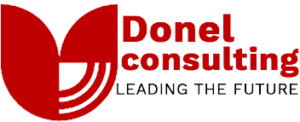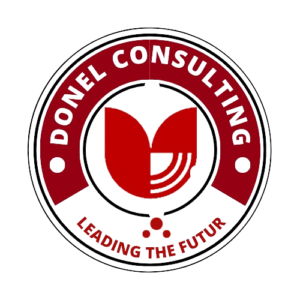Communication & Stakeholder Engagement Strategies
Get insights from our previous missions
Don’t treat communities as passive recipients of aid.
When communities have a stake in solutions and contribute their knowledge, they’re more likely to take ownership and ensure projects are sustained after external support ends.
When communities have a genuine stake in solutions and contribute their local knowledge, they’re far more likely to take ownership and ensure projects are sustained long after external support ends. This isn’t just idealistic thinking – the data backs it up: Studies show that community-driven development projects have a 25-40% higher success rate compared to top-down approaches.
Furthermore, projects with high levels of community participation are 35% more likely to be rated as sustainable 5 years after completion. The World Bank’s evaluation of over 1,000 projects found that those with bottom-up, participatory approaches had an 81% satisfactory rating, compared to just 64% for traditional top-down projects. Community engagement leads to better designed initiatives, more equitable distribution of benefits, and up to 33% lower costs through in-kind contributions.
To navigate the complexities of human interaction.
Identifying common challenges and goals across different groups helps build a sense of shared purpose.
Social Network Mapping for Targeted Interventions
Understanding social structures allows for culturally-sensitive approaches that resonate with local norms and communication styles.
The need to account for network dynamics when designing interventions to ensure they remain effective over time.
Address issues of power dynamics upfront to foster a more equitable and inclusive engagement process.
Helping development practitioners to foster a more equitable and inclusive engagement process.
The Need to Leverage Expertise of Stakeholder Groups
Stakeholder insights can help ensure policies are practical and address real-world concerns.
Best practices for stakeholder engagement in policymaking.
Mastering the art of negotiation allows you to secure the best terms for your organization.
Your project’s success hinges on understanding stakeholder dynamics, fostering collaborative dialogue, and negotiating win-win solutions that resonate with diverse interests.”
Stakeholder concerns are to be reflected in final policies.
Simply collecting concerns isn’t enough. Mechanisms are needed to translate concerns into actionable policy changes.
Building on Existing Knowledge Systems : Identify and collaborate with trusted messengers within communities
Traditional knowledge systems are rich repositories of wisdom, practices, and deep understanding of local contexts. To truly tap into this invaluable resource, we must move beyond simply collecting data. We need to identify and collaborate with trusted messengers within communities.
These individuals hold a unique position. They possess a profound understanding of the community’s cultural norms, values, and challenges. They have earned the trust and respect of their peers, making them effective communicators and change agents.
How to effective partner with them offers these extent possibilities
“Digitize, standardize, and scrutinize: Harness technology to create an incorruptible procurement ecosystem where every transaction is traceable, every process is standardized, and every decision is open to public scrutiny.”
Contextual Vulnerability Mapping :
Messages that address pre-existing health disparities and cultural beliefs about health and illness
Effective communication strategies must be deeply rooted in local beliefs and practices. Development practitioners must immerse themselves in the cultural fabric of the communities they serve, understanding the nuanced ways in which health and illness are conceptualized. This cultural intelligence allows for the crafting of messages that resonate with local worldviews, increasing their efficacy and acceptance. For instance, in communities where traditional healing practices are prevalent, messages about modern medical interventions should be framed in a way that acknowledges and respects these existing belief systems, rather than dismissing them outright.
Ethical Imperatives in Vulnerable Communities
When conducting research and data collection in vulnerable communities, ethical considerations take on heightened significance. The power dynamics inherent in development work demand a heightened level of sensitivity and responsibility. Researchers and practitioners must go beyond mere compliance with ethical guidelines, actively engaging in reflexive practices that continuously question and evaluate the impact of their work on the communities they serve. This involves implementing robust informed consent processes, ensuring data confidentiality, and most crucially, designing research methodologies that prioritize community benefit over academic or organizational interests
The ever-evolving nature of the labor market and the need for skills development programs to keep pace.
The rapid pace of technological change and economic globalization has created a dynamic labor market, where the skills needed for success are constantly evolving. Traditional, static skills development programs are no longer sufficient.
- Deep understanding of adult learning principles and methodologies for effective skills training.
- Ability to translate labor market data into actionable insights for program design.
- Proficiency in project management, monitoring, and evaluation frameworks for skills development programs.
- Excellent communication and interpersonal skills, with the ability to build partnerships and secure stakeholder buy-in.
- Strong analytical and problem-solving skills, with the ability to adapt programs to meet changing market demands.
Avoid generic health promotion campaigns.
Generic campaigns fail to address the unique needs and contexts of different communities. People might not identify with the message or find it irrelevant to their concerns.
One-size-fits-all approaches lack cultural sensitivity. Ignoring cultural beliefs and practices around health can create distrust or disengagement.
Generic campaigns often lack a call to action. Without clear steps for individuals to take, campaigns fail to lead to behavioral change.
We will guide you to :
Conduct community needs assessments to understand the specific health concerns and preferences of your target audience.
Develop culturally appropriate messaging and materials that resonate with the target community.
Empowering Communities to Advocate for Their Own Health Needs.
Communities possess a deep understanding of their unique health challenges. From lack of access to culturally sensitive care to environmental hazards impacting health.
“The intricate dance between personal values and societal expectations is the key to unlocking effective policy design – ignore either at your peril.”
This statement encapsulates the critical insight that successful policy-making must navigate the complex interplay between individual beliefs and broader social norms. It emphasizes the importance of understanding both personal motivations and collective behaviors to create policies that can truly drive desirable outcomes in society.
Facilitating discussions between government, employers, and worker organizations to explore innovative financing mechanisms.
Discover our :
Proficiency in financial modeling and cost-benefit analysis for workforce development programs.
Expertise in conflict resolution and consensus building techniques.
Familiarity with different skills development models and their effectiveness in meeting industry needs.
Tripartite Dialogue for Sustainable Solutions
Facilitating discussions among government, employers, and worker organizations forms the cornerstone of sustainable development financing.
Leveraging Blended Finance Models
Innovative financing mechanisms frequently emerge from the intersection of public and private sector resources. Blended finance models, which strategically use public funds to catalyze private investment, represent a powerful tool in this context to explore how government guarantees, concessional loans, or first-loss provisions can de-risk investments for private sector actors, thereby unlocking new capital streams for development initiatives.
Systemic reforms in skills development policies.
The whirlwind of technological advancements and globalization demands a radical overhaul of our traditional skills development policies. To keep pace, we need systemic reforms that prioritize adaptability and cater to the evolving needs of both workers and the economy.
We built processes to craft lifelong learning ecosystems that support continuous reskilling and upskilling throughout one’s career.

